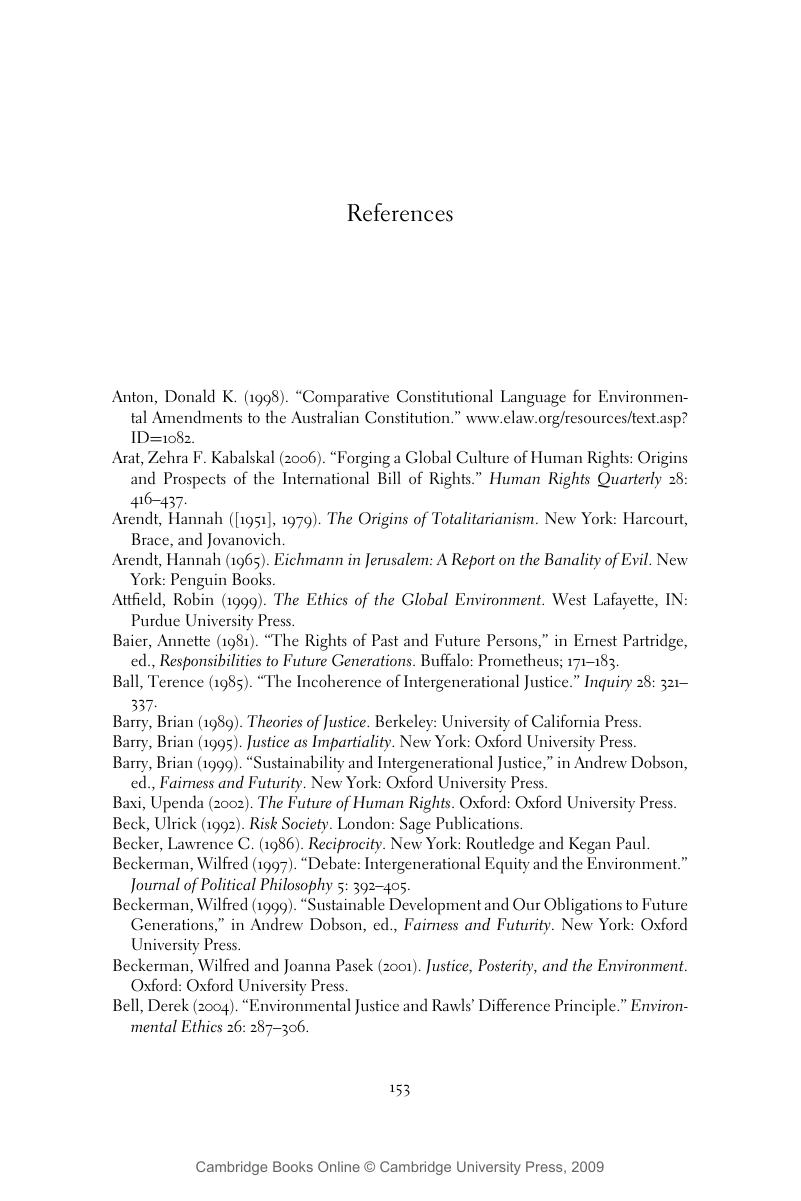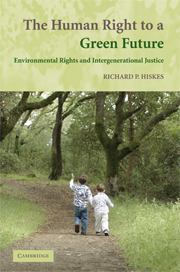Book contents
- Frontmatter
- Contents
- Acknowledgments
- Introduction
- 1 Environmental Human Rights and Intergenerational Justice
- 2 Emergent Human Rights, Identity, Harms, and Duties
- 3 Reflexive Reciprocity and Intergenerational Environmental Justice
- 4 Cosmopolitan Ethics, Communal Reciprocity, and Global Environmentalism
- 5 Toward a Global Consensus on Environmental Human Rights
- 6 Human Rights as Inheritance: Instituting Intergenerational Environmental Justice
- 7 Conclusion: Environmental Justice and the Emergent Future of Human Rights
- References
- Index
- References
References
Published online by Cambridge University Press: 01 July 2009
- Frontmatter
- Contents
- Acknowledgments
- Introduction
- 1 Environmental Human Rights and Intergenerational Justice
- 2 Emergent Human Rights, Identity, Harms, and Duties
- 3 Reflexive Reciprocity and Intergenerational Environmental Justice
- 4 Cosmopolitan Ethics, Communal Reciprocity, and Global Environmentalism
- 5 Toward a Global Consensus on Environmental Human Rights
- 6 Human Rights as Inheritance: Instituting Intergenerational Environmental Justice
- 7 Conclusion: Environmental Justice and the Emergent Future of Human Rights
- References
- Index
- References
Summary

- Type
- Chapter
- Information
- The Human Right to a Green FutureEnvironmental Rights and Intergenerational Justice, pp. 153 - 160Publisher: Cambridge University PressPrint publication year: 2008



